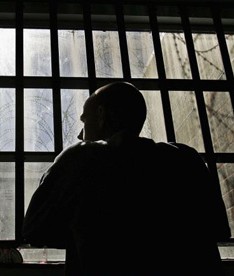UK may not have to give prisoners the vote after all
8 September 2011
 The Ministry of Justice has just released its annual report to the Joint Committee on Human Rights, Responding to human rights judgments.
The Ministry of Justice has just released its annual report to the Joint Committee on Human Rights, Responding to human rights judgments.
The report is worth reading. It contains useful summaries of the 17 European Court of Human Rights judgments against the UK in 2010 and the government’s response to them.
But what is really interesting is what it says about prisoner votes, and the government’s 6-year delay in implementing the 2005 decision in Hirst (No.2) v UK.
I have dealt with the background in previous posts, most recently this one; see also the court’s useful factsheet. In Greens and M.T. v. the United Kingdom the government boldly sought and failed to reverse the decision of the court’s Grand Chamber in Hirst No. 2. The UK was accordingly given a deadline of 11 October 2011 to remove its indiscriminate ban on prisoner voting. But with just five weeks to spare, the UK may now have another bite of the cherry on prisoner votes. According to the report:
In July, the Grand Chamber accepted a referral in the case of Scoppola v Italy… A hearing before the Grand Chamber has been scheduled for 2 November 2011. The legal issues which arise in Scoppola under Article 3 of Protocol 1 are analogous to those which arose in Hirst and in Greens and MT, and the Second Section referred in its judgment to Hirst, as did the Italian Government in its referral request.
Scoppola v Italy (No. 3) (only available in French, but the English press release is here) is another prisoner voting case. The Strasbourg court found that Italy’s policy of imposing lifelong bans on voting to prisoners serving life sentences or sentences of over five years was a violation of Article 3, Protocol 1, the right to free elections. The court repeated the words of the Grand Chamber in Hirst No.2, that a blanket ban was an
automatic and indiscriminate restriction on a vitally important Convention right … falling outside any acceptable margin of appreciation, however wide that margin may be.
The Italian government has been given leave to appeal to the Grand Chamber, the court’s highest level of appeal. And according to the MoJ report, the UK is joining in with the appeal:
the Government has sought leave to intervene in the Scoppola hearing and to defer the time limit specified in Greens and MT, which is due to expire on 11 October 2011. The Government was notified on 31 August that the Court has granted an extension of six months from the date of the Scoppola judgment
It seems unlikely that the Grand Chamber will reverse its own ruling in Hirst No. 2, given that it was made in such strong terms. But assuming that the court could take a while to publish its ruling in Scoppola, perhaps up to a year, the government could have a further year and a half before it has provide prisoner the vote.
The other option is that the court may indeed reverse Hirst No. 2, giving states the ability to impose blanket bans, perhaps in relation to the most serious crimes. Given that John Hirst was convicted of manslaughter and Mr Franco Scoppola of murder, both cases could fall within this exception.
Whatever the result in Scoppola, the UK could have been granted nearly 8 years since Hirst No. 2 without having to do anything about it. In March I questioned whether the UK’s tactics of procrastination on this issue were unappealing, and Dr Ed Bates suggested the government may have been misusing the court’s process. But whatever you view on the tactics, they seem to be working.
Sign up to free human rights updates by email, Facebook, Twitter or RSS
Related posts
- Did the UK misuse European court process on prisoner votes? – Dr Ed Bates
- Tick tock tick tock
- Prisoner votes: EU won’t help



I have just spend the morning reading the MoJ report and I agree that is very informative and not just in relation to the issue of prisoner votes.